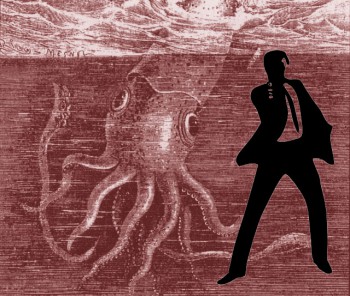 Mania, my dear Mister Bond, is as priceless as genius.
Mania, my dear Mister Bond, is as priceless as genius.
Some time ago in the earlier days of the Black Gate blog, E. E. Knight wrote a post about the James Bond movies as classic fantasies. No argument here—especially when I consider things like The Spy Who Loved Me and Bond-drives-an-invisible-car Die Another Day.
However, the conventional wisdom about the divide between the long-running movie franchise and the series of novels and short stories that Ian Fleming wrote in the fifties and sixties is that Fleming is the realistic, grim, down-to-earth Bond, where the movies are outrageous action-filled rides.
I’m a hardcore Bond fan, but unlike most Bondians my age (born into the ‘70s and Roger Moore’s tenure) I grew up on Fleming’s Bond, not cinema’s. I read all the novels for the first time in junior high school, and at that point had only watched perhaps three of the movies. I ended up approaching the film series from the perspective of a Fleming Purist. This doesn’t mean I flip out when anything un-Fleming occurs in the movies—for Apollo’s sake, I actually get a kick out of the Space Opera/Chuck Jones cartoon called Moonraker—but it does mean I have a very different lens on than film series than even most serious Bond fans.
And here’s something I’ve learned over the years from watching the films series develop and tracing the history of the earlier movies (Goldfinger is my favorite of the movies, in case you’re interested): Fleming ain’t realistic. His novels are extremely romanticized views of espionage life, and were thought so at the time. Read John le Carré’s extraordinary The Spy Who Came in From the Cold, meant as an answer to Fleming’s spy-romances, and you’ll immediately see what flights of fantasy Fleming really took with his super-spy. Compared to many of the movies, the novels Casino Royale and From Russia, With Love seem relatively believable, but they are still escapist romances.
Here’s the key difference between the escapism of the films and the books: The movies are fantasies. The novels are pulp adventure—almost literally so.
…
Read More Read More
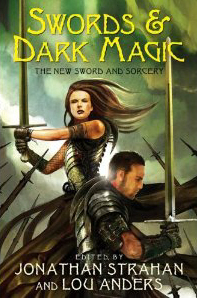 Lou Anders reports that Time columnist Lev Grossman has selected his new anthology Swords & Dark Magic as one of two recommended “Summer Page Turners” in the July 12th issue.
Lou Anders reports that Time columnist Lev Grossman has selected his new anthology Swords & Dark Magic as one of two recommended “Summer Page Turners” in the July 12th issue.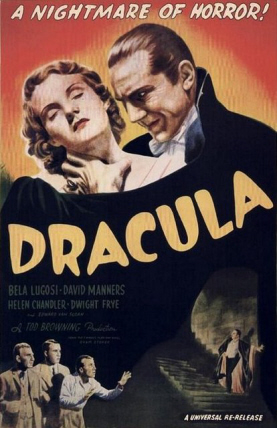 Dracula by Bram Stoker frequently vies with The Maltese Falcon by Dashiell Hammett as my favorite book.
Dracula by Bram Stoker frequently vies with The Maltese Falcon by Dashiell Hammett as my favorite book. Okay, writers. Let’s say you have a short story idea or two, but you don’t know the best way to write it. Some sage writers with some sales under their belts tell you that you Must Outline. Other wisened authors tell you to just, “Go where the story takes you,” that you shouldn’t outline at all.
Okay, writers. Let’s say you have a short story idea or two, but you don’t know the best way to write it. Some sage writers with some sales under their belts tell you that you Must Outline. Other wisened authors tell you to just, “Go where the story takes you,” that you shouldn’t outline at all. “Clowns, without a doubt.”
“Clowns, without a doubt.”
 Mania, my dear Mister Bond, is as priceless as genius.
Mania, my dear Mister Bond, is as priceless as genius.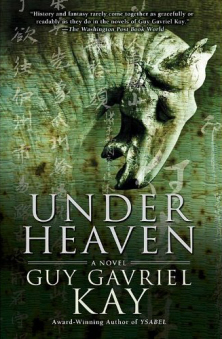
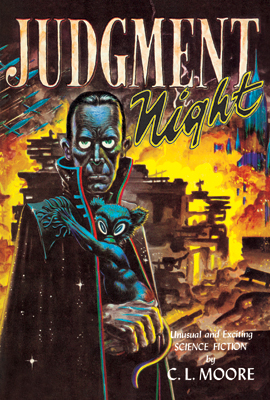 Famed with her husband Henry Kuttner for turning out superlatively compelling and complex stories for the pulps, both jointly and singly, Catherine Moore began writing in 1933.
Famed with her husband Henry Kuttner for turning out superlatively compelling and complex stories for the pulps, both jointly and singly, Catherine Moore began writing in 1933.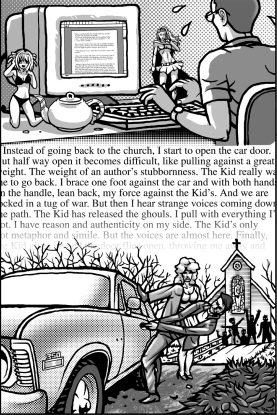 It’s hard to be a modern hero. Especially when the author can’t make up his mind.
It’s hard to be a modern hero. Especially when the author can’t make up his mind.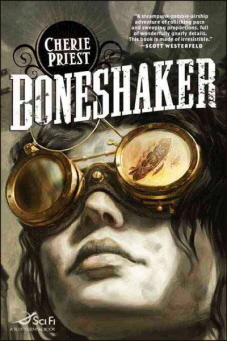 The 2010 Locus Awards winners were announced today, at the annual Science Fiction Awards Weekend in Seattle. The winners include:
The 2010 Locus Awards winners were announced today, at the annual Science Fiction Awards Weekend in Seattle. The winners include: